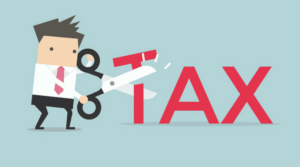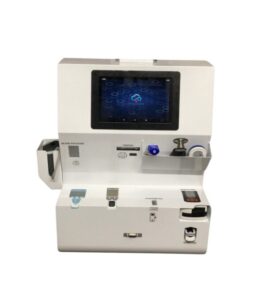The Straightforward Guide to Getting FCA Crypto Registration
The Financial Conduct Authority (FCA) is the UK’s financial regulator. It regulates the financial services industry in the UK, including firms offering cryptoassets.
To operate in the UK, cryptoasset businesses must be registered with the FCA. This process can seem daunting, but we’ve put together a straightforward guide to help you through the registration process.
1. Why Register with the FCA?
The UK’s Financial Conduct Authority (FCA) regulates financial services and promotes market integrity. If you operate a business that provides financial services, you must be authorised by the FCA to do so. This includes businesses that deal in cryptocurrencies.
Cryptocurrency businesses must register with the FCA because they fall under a “specified investment” definition. Specified investments include commodities, derivatives, and certain types of securities. The FCA has stated that cryptocurrencies meet the definition of a commodity, and therefore businesses dealing in cryptocurrencies must be registered with the authority.
2. Scope of Registration
The FCA’s registration regime applies to firms carrying on regulated activities in the UK. These activities are defined in the Financial Services and Markets Act 2000 (as amended) and the Financial Services Act 2012. As the United Kingdom recently revised its legislative framework against financial fraud, money laundering, and terrorism financing, the FCA’s scope now covers crypto exchange transactions. The FCA crypto license UK requirement is a way of preventing the use of cryptoassets in crime and terrorism. For those considering starting a crypto business, the UK government will require them to obtain the FCA crypto registration before operating.
Cryptoassets are currently not classified as financial instruments under UK law. However, some activities regarding crypto assets may be caught by the definition of a ‘regulated activity.’ These activities include:
- Dealing in cryptoassets (i.e. buying and selling cryptoassets)
- Arranging deals in cryptoassets (i.e. bringing together buyers and sellers of cryptoassets)
- Managing investments in cryptoassets (i.e. investing, holding or administering cryptoassets on behalf of clients)
- Advising on cryptoassets (i.e. giving advice to clients about investing in or buying cryptoassets)
If you are unsure whether your business activities fall within the scope of the FCA’s registration regime, you can contact the FCA for guidance.
3. Applying for FCA Registration
If you carry on a regulated activity in the UK, you must be authorised by the FCA to do so. This means that you need to apply for FCA registration. The process for applying for registration depends on the type of firm that you are.
There are three types of firms that can carry on regulated activities:
- Authorised firms
- EEA authorised firms
- Registered firms
If you are an authorised or EEA authorised firm, you will already be authorised to carry on regulated activities in the UK. You will not need to register with the FCA separately. However, you will need to notify the FCA that you are carrying on a regulated activity in the UK, and you may need to obtain permission from the FCA to do so.
If you are a registered firm, you can apply to the FCA for registration. The registration process is set out in the Financial Services and Markets Act 2000 (Registration of Controlled Activities) Regulations 2001 (as amended).
4. The Application Process
The first step in the registration process is to complete the online application form. The form can be found on the FCA website.
Once you have completed the form, you will need to send it to the FCA along with the following documentation:
- A business plan
- A management information pack
- Audited accounts for the last three financial years
- Evidence of professional indemnity insurance cover
The FCA will then assess your application and decide whether or not to grant you registration. If your application is successful, you will be entered into the FCA register.
5. Key Considerations for Your Crypto Business
When registering your cryptocurrency business with the FCA, there are a few key things to keep in mind:
- You will need a compliance officer on staff responsible for ensuring your business adheres to FCA regulations.
- The FCA must approve your marketing materials before they can be used.
- You will need to maintain detailed records of all your transactions.
- You will be subject to ongoing reporting requirements.
- You may need to obtain a license from the FCA if your business activities fall within specific categories.

To start a cryptocurrency business in the UK, you must register with the Financial Conduct Authority (FCA). The registration process is detailed and complex, so seeking professional help is essential before starting your application. Your application will need to include information about your business, your financial history, and your compliance with FCA regulations. Once your application has been approved, you must pay the registration fee. A few key things to remember when registering your cryptocurrency business with the FCA include having a compliance officer on staff, maintaining detailed records of all transactions, and being subject to ongoing reporting requirements.
You may also need to obtain a license from the FCA if your business activities fall within specific categories. Registering your cryptocurrency business with the FCA is a complex process, but it’s crucial to ensure that you comply with all regulations. Professional help can make the process easier and ensure that your application is complete and accurate.






